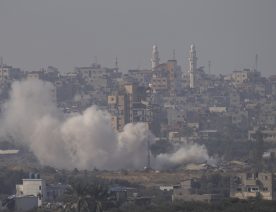
October 30, 2024
In the year since Hamas’ surprise cross-border attack on Israel, the war in Gaza rages on, even as Israel fights a new war against Hezbollah, the militant group based in Lebanon. Israel is also in increasing conflict with Iran, which backs both Hamas and Hezbollah.
About half of registered voters believe the United States is doing as much as it can to secure a ceasefire between Israel, Hamas, and Hezbollah, while 3 in 10 voters think it could be doing more to secure a ceasefire. Democratic voters are more likely than Republican voters to say the United States is doing as much as it can.
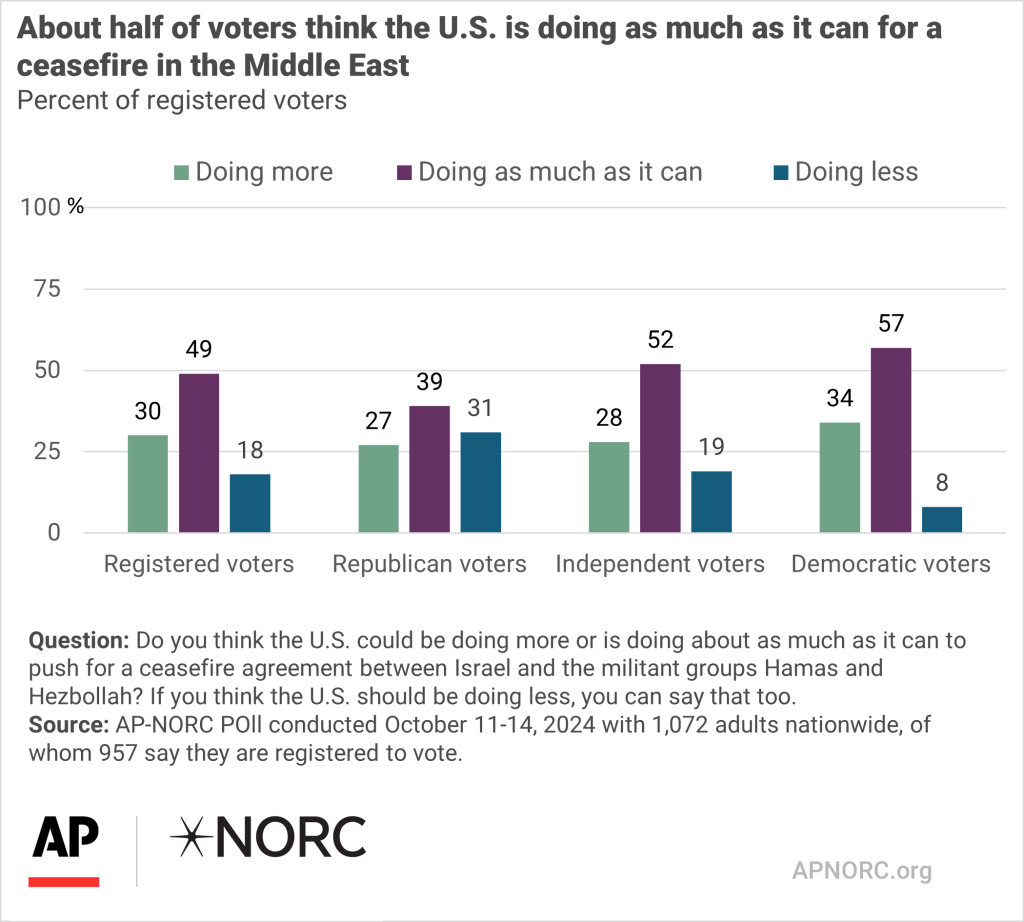
About half of registered voters are concerned that the current situation in the Middle East will escalate into an even broader conflict, and about 4 in 10 are worried the United States will be drawn into a war. Democratic and Republican voters are similarly concerned about the conflict’s escalation.
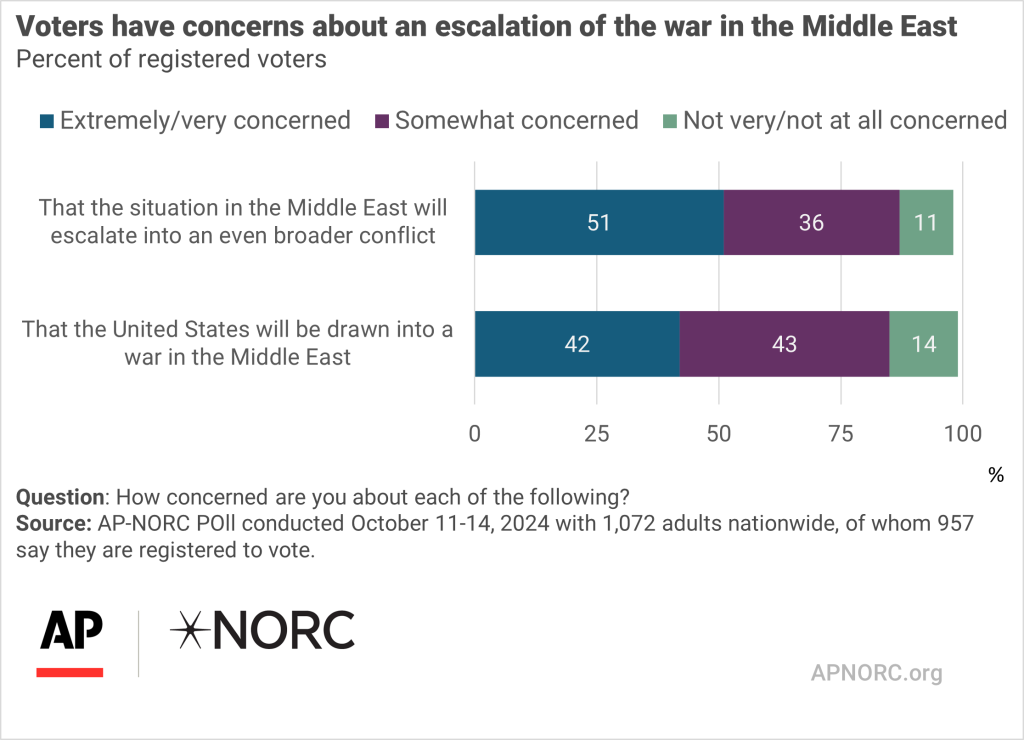
Fifty-five percent of registered voters support economic sanctions on Iran. Iran is backing Hezbollah, the militant group based in Lebanon.
There is less support for providing weapons or funds to Israel’s military, and few voters like the idea of sending U.S. troops to help Israel. Republican voters are more supportive than Democratic voters of supporting the Israeli military with either weapons or financially.
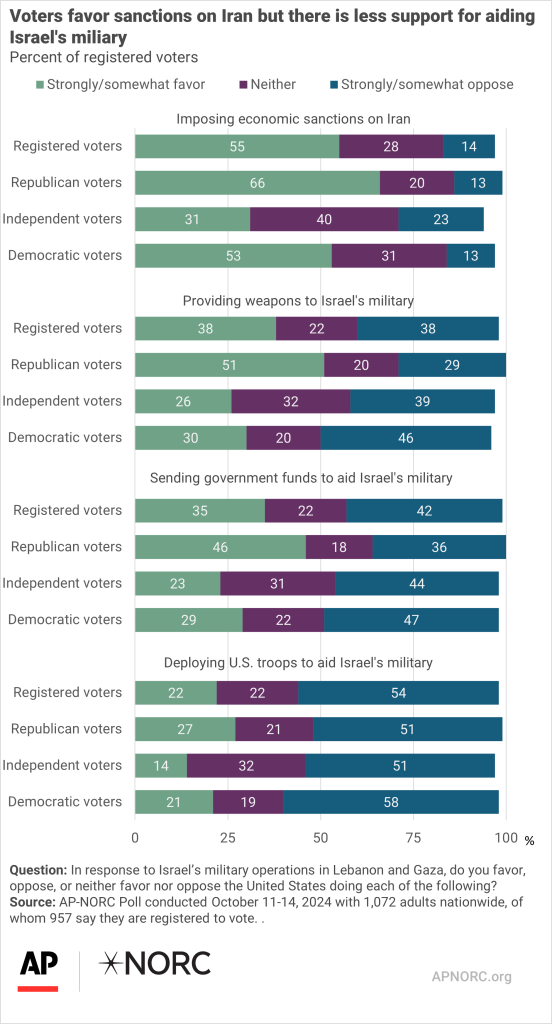
Most registered voters place a lot of the responsibility for the escalation of the war on Hamas, Iran, and Hezbollah. Fewer voters hold the Israeli government responsible for the increase in hostilities in the region, while only about a fifth think the United States is to blame.
Democrats are twice as likely as Republicans to assign blame for the escalation of the war on Israel.
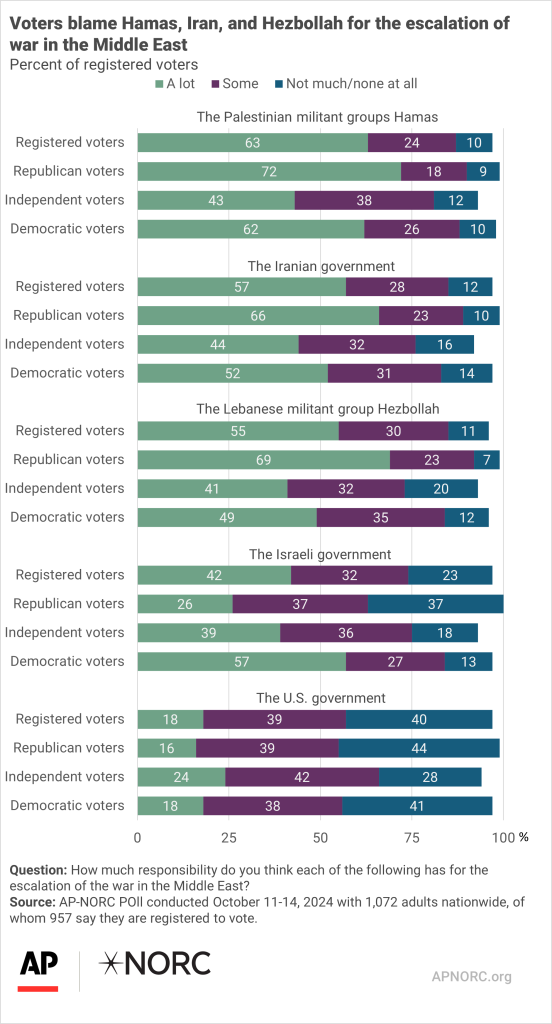
The nationwide poll was conducted October 11-14, 2024 using the AmeriSpeak® Panel, the probability based panel of NORC at the University of Chicago. Online and telephone interviews using landlines and cell phones were conducted with 1,072 adults, of whom 957 say they are registered to vote. The overall margin of sampling error for registered voters is +/- 4.2 percentage points.
Suggested Citation: AP-NORC Center for Public Affairs Research. (October 2024). “Many voters are concerned the conflict in the Middle East will escalate into a broader war” https://apnorc.org/projects/many-voters-are-concerned-the-conflict-in-the-middle-east-will-escalate-into-a-broader-war/






